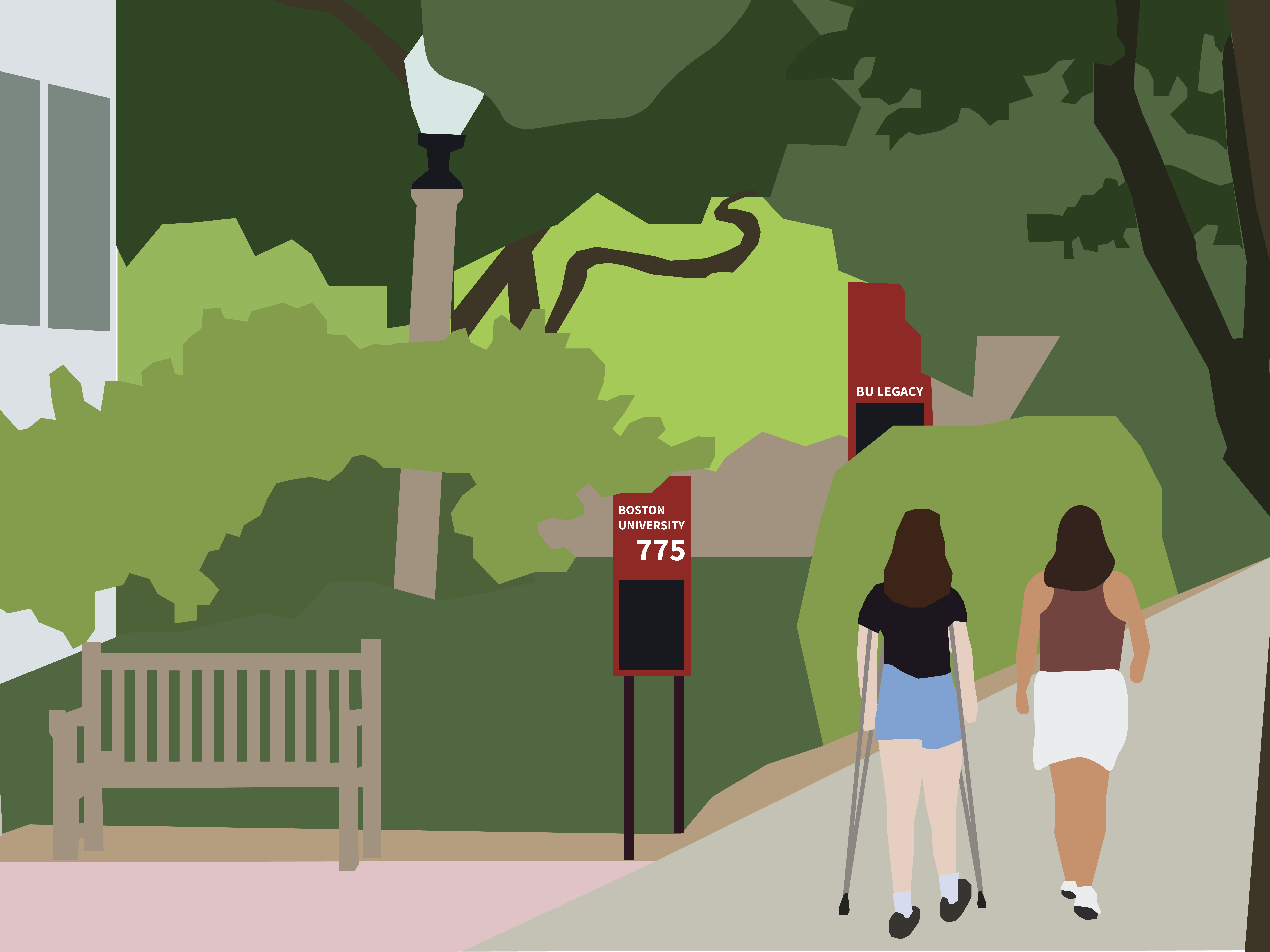After three weeks on crutches due to a sports injury that ended in hip surgery, I suddenly found myself facing everyday challenges that made the walkable city of Boston, unwalkable. I wanted to share some advice for anyone else who finds themselves on crutches in the middle of the semester.

Avoid taking Cummington Mall steps — and other steps on that note.
This one seems like a no-brainer — crutches and stairs do not mix. When taking the steps from Beacon St. to Cummington Mall is part of your everyday routine, however, breaking the habit can be tough. My friend, who was also on crutches, and I learned that we had to adapt to our new situation and avoid steep stairs and hills, paying extra attention to uneven sidewalks. Unfortunately, almost every sidewalk on BU’s campus is uneven, so be careful.
Sometimes avoiding certain parts of campus, like the stairs to get into class or the basement of Wheelock, is not an option because of class locations and routes to class.
When I found myself in situations like this, I looked around for accessibility signs and made sure, when there was no elevator, to go down stairs very slowly. Being late to class is better than further injuring yourself!
Communicate openly and honestly with professors
Since my surgery was planned, I was able to speak with all my professors about a week into the semester and plan absences and make-up work accordingly. But, for some people, injuries and surgeries can be totally unexpected.
Regardless, try to speak with your professors as soon as possible to let them know any challenges you may anticipate, whether that’s needing some extra time to get to class or missing class for appointments or rest.
Luckily, my professors were all very accommodating about my situation and often checked in on me. It was the open communication about deadlines, class absences and recovery time that helped me keep up with academics while dealing with the injury. By prioritizing communication with your professors, you can focus on healing rather than stressing.
Grocery shopping and tasks outside of school
The planned surgery also gave me the opportunity to plan how I would grocery shop while on crutches. If you can, it’s extremely helpful to go with a friend or family member. This reduced the hassle of balancing on crutches while shopping and reaching for items on shelves.
I would not recommend making full meals by yourself on crutches. However, if you want to cook, I would buy ready-made meals from Star Market, purchase items for breakfasts that require no preparation like yogurt and buy dinners out.
For grocery shopping when your friends or family can’t help you, try using Uber Eats or GrubHub to order groceries from CVS, Star Market or other grocers on the app. Then, have a roommate or a friend help you carry them upstairs.
As for cleaning and navigating day-to-day tasks, utilize chairs and don’t be afraid to ask friends for help when you need it. The good news is that so many students are willing to assist with doors, save seats on the BU Bus or simply help you navigate buildings on campus.
Accept the injury and take it seriously
Most important of all, it’s important to take the injury seriously and accept that this might be your new normal for a little while. Become comfortable asking for help from friends, family, and fellow students.
Along the same lines, asking for help can be hard, but if you’re not asking for help and taking the injury seriously, it could get worse.
My friend and I both struggled when we were first dealing with crutches, so know that if you are struggling with an unexpected injury, you are not alone. Don’t be afraid to reach out for mental health help as well.
All in all, know that it’s completely okay to ask for help, make sure to communicate often with professors and friends and, ultimately take it one day at a time.





















































































































